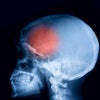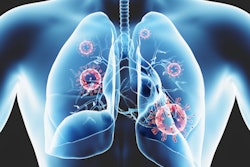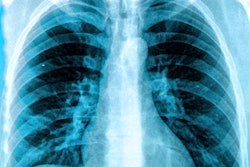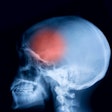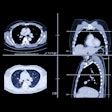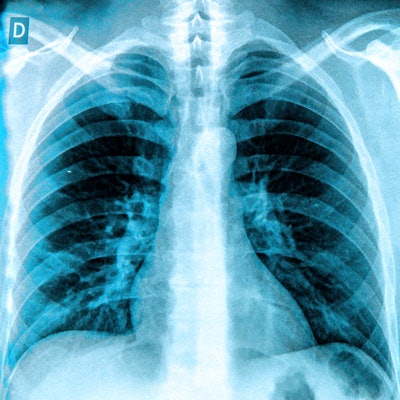
The sensitivity of serial chest x-rays for COVID-19 detection approaches the performance of chest CT, according to a study published on September 24 in Radiology: Cardiothoracic Imaging.
A group of researchers led by Dr. Stephanie Stephanie from the University of Maryland School of Medicine in Baltimore found that chest x-ray's sensitivity for identifying COVID-19 improves over time, and that multiple chest x-rays of patients with the illness approach an accuracy similar to chest CT.
The team conducted a study that included 254 patients with COVID-19 confirmed by reverse transcription polymerase chain reaction (RT-PCR) who had at least one chest x-ray or chest CT; these were compared to 254 age- and gender-matched patients without the disease. The team found that chest x-ray sensitivity increased over the course of COVID-19 disease, from 55% at less than two days after the appearance of symptoms to 79% at 11 days or more.
The group also found the following:
- X-ray's sensitivity on first exam was 73% and on second exam was 83%. Chest CT's sensitivity was 88%.
- X-rays specificity on first exam was 80% and 73% on second exam. Chest CT's specificity was 77%.
- The accuracy of serial chest x-ray approached that of chest CT, the team found, with an AUC of 0.88 compared to CT's 0.92.
"Serial chest radiography sensitivity for detection of novel 2019 coronavirus infection approaches chest CT, suggesting utility of [the modality] as an adjunctive diagnostic tool for COVID-19 patients," Stephanie and colleagues concluded.

